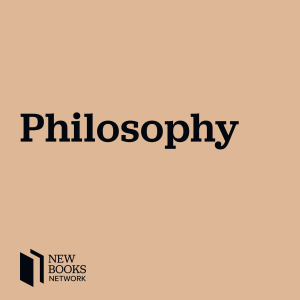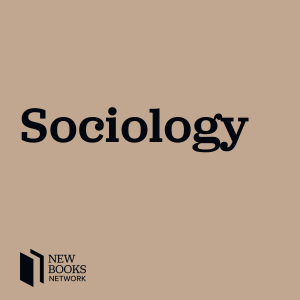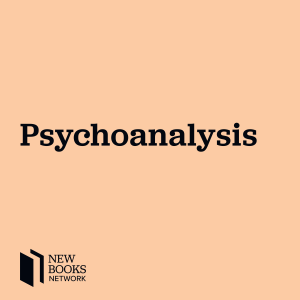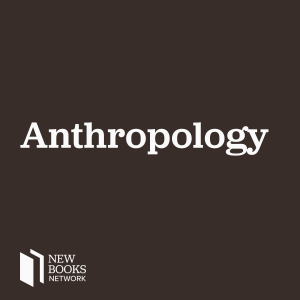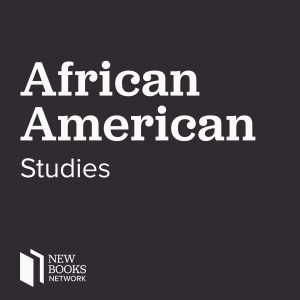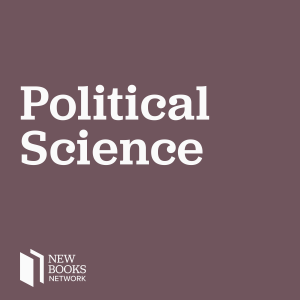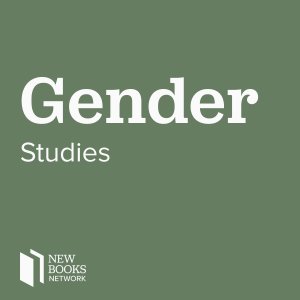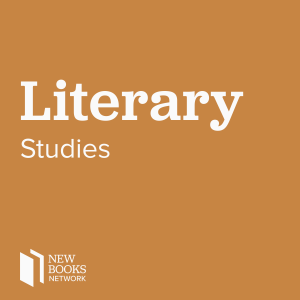

Episode List

154 Planetary Boundaries are Non-Negotiable: Kim Stanley Robinson
With influential series on California, on the terraforming of Mars, and on human civilization as reshaped by rising tides, Kim Stanley Robinson has established a conceptual space as dedicated to sustainability as his own beloved Village Homes in Davis, California. All of that, though, only prepared the ground for Ministry for the Future, his 2020 vision of a sustained governmental and scientific rethinking of humanity’s fossil-burning, earth-warming ways. Flanked by RTB’s JP, KSR’s friend and ally Elizabeth Carolyn Miller (celebrated eco-critic and UC Davis professor) asked him to reflect on the book’s impact in this conversation with our sister podcast, Novel Dialogue.KSR, Stan to his friends, brushes aside the doom and gloom of tech bros forecasting the death of our planet and hence the necessity of a flight to Mars: humans are not one of the species doomed to extinction by our reckless combustion of the biosphere. However, survival is not the same as thriving. The way we are headed now, “the crash of civilization is very bad. And ignoring it…is not going to work.” Mentioned in this episode: Pact for the FutureCOP 26 (2021 United Nations Climate Change Conference)COP 30 (where KSR will be a UN rep….)Planetary boundaries J. Rockstrom (et. al.)Charles MacKay, Extraordinary Popular Delusions and the Madness of CrowdsParis AgreementDon’t Look UpTobias Menely, The Animal Claim: Sensibility and the Creaturely VoiceMary Shelley, Frankenstein; or, The Modern Prometheus (1818) Listen and Read. Learn more about your ad choices. Visit megaphone.fm/adchoicesSupport our show by becoming a premium member! https://newbooksnetwork.supportingcast.fm/literary-studies

Megan Cummins, "Atomic Hearts" (Ballentine Books, 2025)
Sixteen and living in a small Michigan town, Gertie is harboring a secret heavy enough to fracture her closest friendship. She and Cindy have been bonded since birth by the fact their fathers are addicts, and their unsteady home lives are a little easier when they’re together, sprawled on a trampoline with pilfered vodka and dreams of moving to New York.After an accident involving a bonfire and an aerosol canister sends Gertie to the hospital, she finds herself with nowhere to go but to Sioux Falls, South Dakota, to live with her newly sober father. She sees it as a chance to escape the hometown drama she’s caused, but drama finds her all the same: parties without curfews, boys without boundaries, a compromising photo, tragedy back home . . . and her father, once again teetering on the edge of oblivion. Terrified of the consequences of being honest with Cindy, her sole refuge is the fantasy novel she’s writing, a portal to another world and the story of a young girl roaming a strange land, trusting her wits to survive.Years later, when ghosts of the past surface, Gertie decides to write again about that explosive summer from the stabler shores of adulthood. Powered by the fierce imagination of her youth, Gertie finally allows herself the grace to tell a version of her narrative that she always hoped would be true.Written with the feel and power of a ticking time bomb, Atomic Hearts is an unforgettable story of the ways we can be saved by friendship, love, and imagination. Megan Cummins is the author of If the Body Allows It, awarded the 2019 Prairie Schooner Book Prize and longlisted for the Story Prize and the PEN/Robert W. Bingham Prize for Debut Short Story Collection. Her stories and essays have appeared in A Public Space, Guernica, One Teen Story, Ninth Letter, Electric Literature, and elsewhere. She edits Public Books, a magazine of arts, ideas, and scholarship. Recommended Books: Miriam Toews, All My Puny Sorrows Denne Michelle Norris, When the Harvest Comes Nick Fuller Goggins, The Frequency of Living Things Chris Holmes is Chair of Literatures in English and Professor at Ithaca College. He writes criticism on contemporary global literatures. His book, Kazuo Ishiguro Against World Literature, is published with Bloomsbury Publishing. He is the co-director of The New Voices Festival, a celebration of work in poetry, prose, and playwriting by up-and-coming young writers. Learn more about your ad choices. Visit megaphone.fm/adchoicesSupport our show by becoming a premium member! https://newbooksnetwork.supportingcast.fm/literary-studies

Isabel Toral and Beatrice Gruendler, "An Unruly Classic: Kalīla and Dimna and Its Syriac, Arabic, and Early Persian Versions" (Brill, 2024)
The collection of wisdom fables known as Kalila and Dimna began its long literary life in Sanskrit more than two millennia ago, and was subsequently translated to numerous languages. But it is the Arabic version, adapted from Middle Persian by the eighth-century scholar Ibn al-Muqaffa, that has left the most substantial literary footprint. A foundational text of classical Arabic prose and the basis for translations into Hebrew, Syriac, Castilian, Latin, Persian, and more, versions of Kalila and Dimna exists in hundreds of manuscript copies held in libraries around the world. Kalila and Dimna is the focus of Isabel Toral and Beatrice Gruendler's new work An Unruly Classic: Kalīla and Dimna and Its Syriac, Arabic, and Early Persian Versions (Brill: 2024). In this collected volume, members of the Kalila and Dimna project discuss, from different perspectives, a core aspect of their work with this textual tradition: the study of variation and mutability. The aim is to shed light on Kalila and Dimna’s so-called mouvance and establish typologies of textual mobility and instability across linguistic traditions and historical periods, as well as to develop analytical tools to describe, classify, represent, and interpret these dynamics. As will be shown, the progressive digitalization of philology in the last decades has offered the unique opportunity of putting the concept of mouvance into practice. Contributors include Theodore S. Beers, Jan J. van Ginkel, Khouloud Khalfallah, Mahmoud Kozae, Rima Redwan, and Johannes Stephan. Learn more about your ad choices. Visit megaphone.fm/adchoicesSupport our show by becoming a premium member! https://newbooksnetwork.supportingcast.fm/literary-studies

Jan Dost, "Safe Corridor" (DarArab, 2025)
A bold, unforgettable novel of war, imagination, and survival. Thirteen-year-old Kamiran is fleeing the collapse of Syria when his body begins to harden literally—turning to chalk. As his transformation unfolds, he pours his memories, secrets, and darkly funny confessions into a piece of chalk he stole at school. Through the eyes of this precocious, resilient boy, Safe Corridor explores what it means to survive the unthinkable—with tenderness, fury, and imagination. Written by acclaimed Kurdish-Syrian novelist Jan Dost and translated by Marilyn Booth—winner of the 2019 International Booker Prize—Safe Corridor is a searing, surreal journey through displacement, coming of age, and the cost of war. Winner of the 2024 Bait AlGhasham DarArab International Translation Prize. Jan Dost, born in 1966, is a native of Kobani in the Aleppo region of Syria. A student of natural sciences at the University of Aleppo (1985-89), he embarked on a career in journalism in the roles of reporter and editor, currently for the Kurdistan Chronicle (published in English in Erbil, Iraq) He is editor-in-chief of the Arabic-language magazine Kurdistan. Marilyn Booth is professor emerita, Faculty of Asian and Middle Eastern Studies and Magdalen College, Oxford University. Learn more about your ad choices. Visit megaphone.fm/adchoicesSupport our show by becoming a premium member! https://newbooksnetwork.supportingcast.fm/literary-studies

William Marx, "Libraries of the Mind" (Princeton UP, 2025)
Erich Auerbach wrote his classic work Mimesis, a history of narrative from Homer to Proust, based largely on his memory of past reading. Having left his physical library behind when he fled to Istanbul to escape the Nazis, he was forced to rely on the invisible library of his mind. Each of us has such a library—if not as extensive as Auerbach’s—even if we are unaware of it. In this erudite and provocative book, William Marx explores our invisible libraries—how we build them and how we should expand them.Libraries, Marx tells us, are mental realities, and, conversely, our minds are libraries. We never read books apart from other texts. We take them from mental shelves filled with a variety of works that help us understand what we are reading. And yet the libraries in our mind are not always what they should be. The selection on our mental shelves—often referred to as canon, heritage, patrimony, or tradition—needs to be modified and expanded. Our intangible libraries should incorporate what Marx calls the dark matter of literature: the works that have been lost, that exist only in fragments, that have been repurposed by their authors, or were never written in the first place. Marx suggests methods for recovering this missing literature, but he also warns us that adding new titles to our libraries is not enough. We must also adopt a new attitude, one that honors the diversity and otherness of literary works. We must shed our preconceptions and build within ourselves a mental world library. William Marx is professor of comparative literature at the Collège de France. He is the author of The Hatred of Literature, The Tomb of Oedipus: Why Greek Tragedies Were Not Tragic, and other books. Morteza Hajizadeh is a Ph.D. graduate in English from the University of Auckland in New Zealand. His research interests are Cultural Studies; Critical Theory; Environmental History; Medieval (Intellectual) History; Gothic Studies; 18th and 19th Century British Literature. YouTube channel. Twitter. Learn more about your ad choices. Visit megaphone.fm/adchoicesSupport our show by becoming a premium member! https://newbooksnetwork.supportingcast.fm/literary-studies
Create Your Podcast In Minutes
- Full-featured podcast site
- Unlimited storage and bandwidth
- Comprehensive podcast stats
- Distribute to Apple Podcasts, Spotify, and more
- Make money with your podcast
